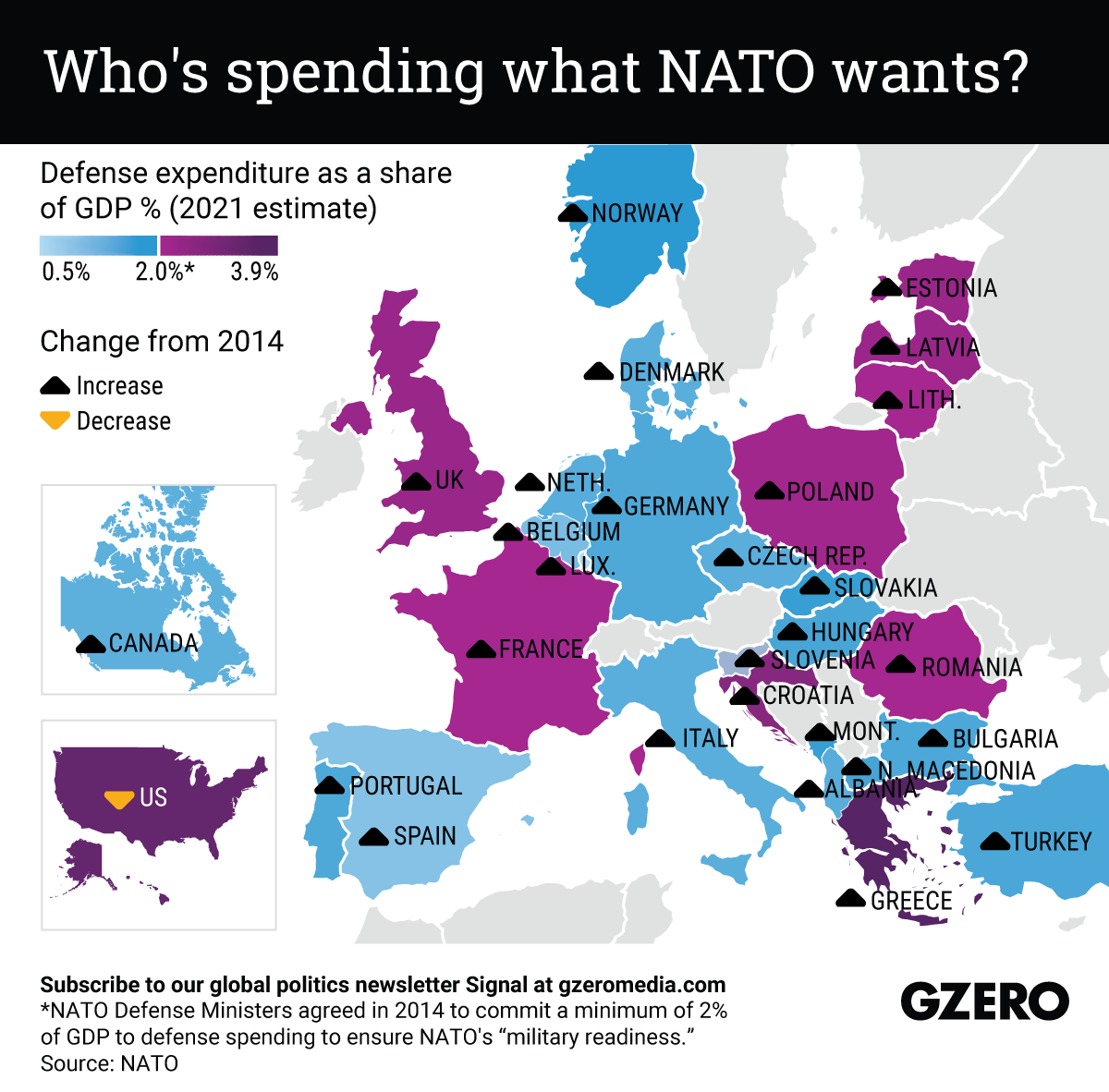In 2017, then-US President Trump rallied against NATO, complaining that European member states weren't pulling their weight to bolster the alliance, whose cornerstone is that an attack on one member is considered an attack on all. NATO was formed in the wake of World War II as a counterweight against Soviet dominance in Europe and beyond. But this week, when US President Biden met fellow NATO members in the UK, the emphasis was on how to adapt the alliance to counter China's increasing belligerence. Indeed, disagreements over sharing the cost of maintaining military readiness have caused frictions in recent years, and as a result, the bloc agreed that all member states would spend at least 2 percent of GDP on defense by 2024. So, how are they tracking? Here's a look at who pays what.
More from GZERO Media
U.S. President Donald Trump meets with Italian Prime Minister Giorgia Meloni in the Cabinet Room at the White House in Washington, D.C., U.S., April 17, 2025.
A federal judge set up a showdown with the Trump administration on Wednesday with a ruling that threatens to find the government in contempt if it fails to comply with a judicial order to provide due process to Venezuelans deported to a prison in El Salvador.
California governor Gavin Newsom kicked off a campaign to promote Canadian tourism in his state, pitching its sunny beaches, lush vineyards, and world-class restaurants.
The Liberals, long the enemies of Quebec's sovereigntists, can only say, “Merci beaucoup, Donald."
For insights on the upcoming Canadian election, GZERO’s Tasha Kheiriddin sat down with two senior advisors at Eurasia Group: Vice Chairman Gerald Butts, former advisor to Liberal Prime Minister Justin Trudeau, and John Baird, former Cabinet minister under Conservative Prime Minister Stephen Harper.
Donald Trump’s administration announced that it is opening investigations into pharmaceutical and semiconductor supply chains, which will likely result in tariffs that will hurt suppliers in Europe, India, and Canada.
2.75: Canada’s central bank held its key interest rate steady at 2.75% this week, ending a streak of seven consecutive cuts.
Hard as it is to imagine amid the harrowing US-China trade war these days, there was a time when the two countries hardly did any business with each other.
As the Democrats start plotting their fight back into power in the 2026 midterms, one issue has come up again and again.
China’s economy grew faster than expected in the first quarter, expanding at an annual rate of 5.4% — 0.3 percentage points above forecasts — driven by strong consumer spending and industrial output.
Jordanian authorities announced on Wednesday the arrest of 16 people accused of planning terrorist attacks inside Jordan. The country’s security services say the suspects had been under surveillance since 2021, and half a dozen of them were reportedly members of the Muslim Brotherhood, a transnational Islamist organization.
